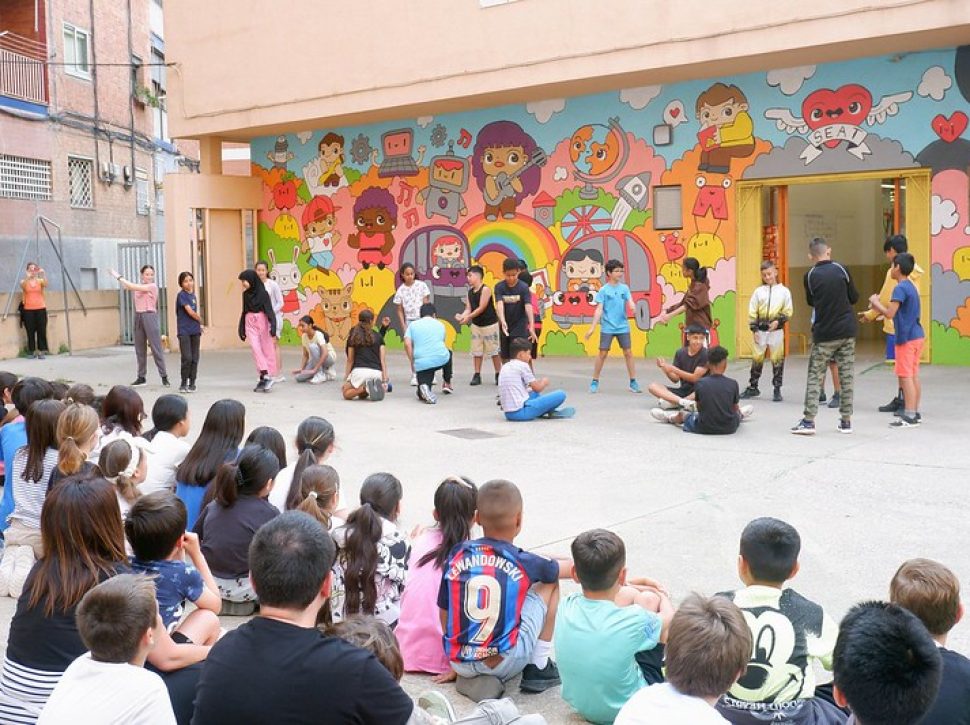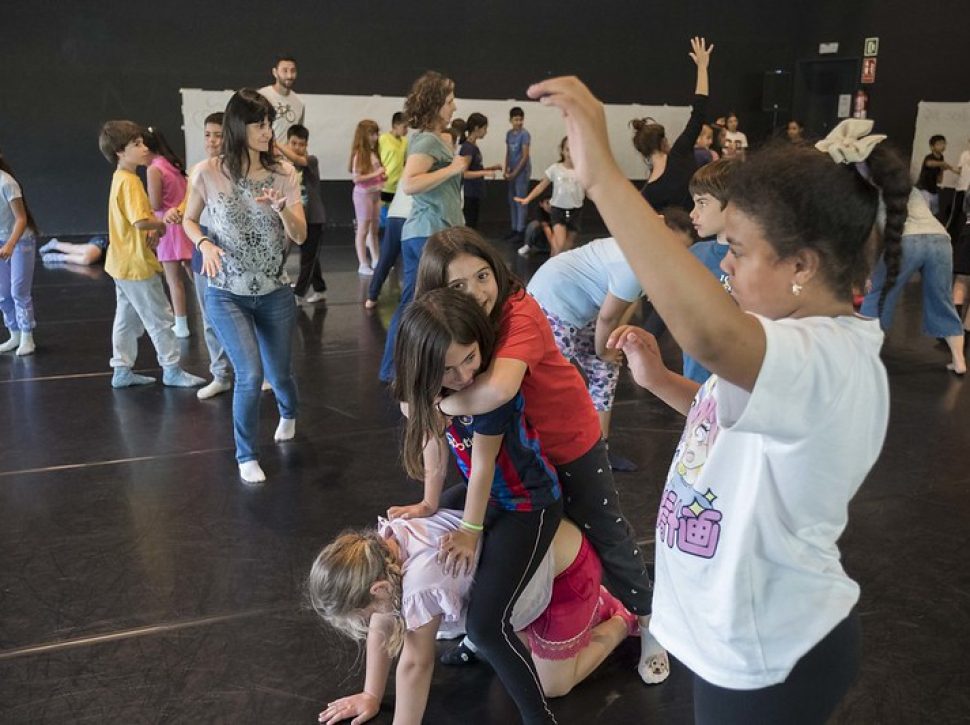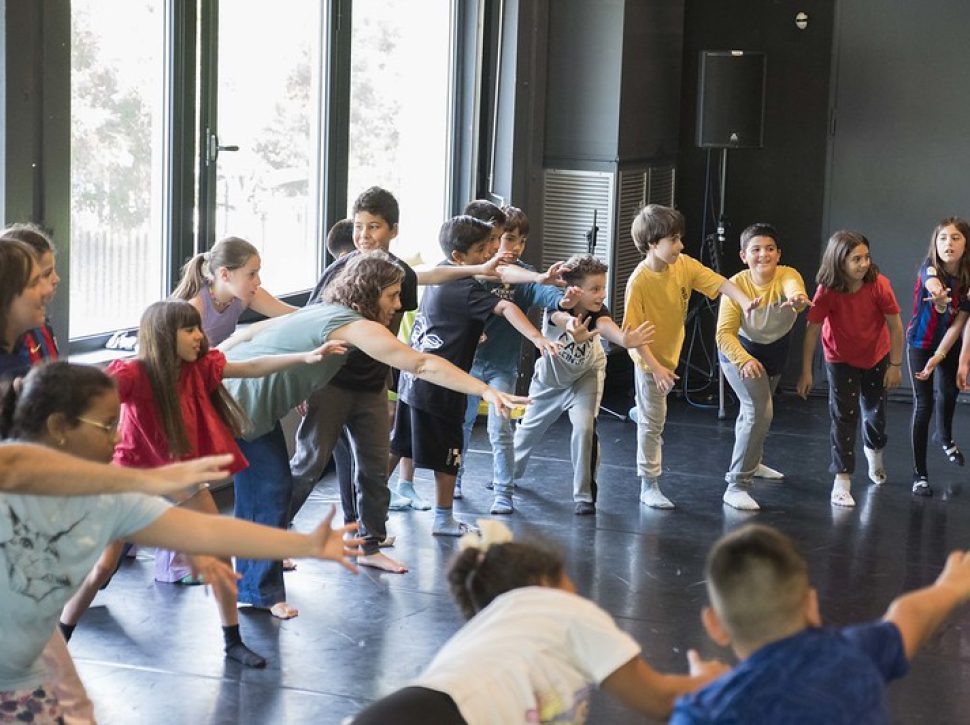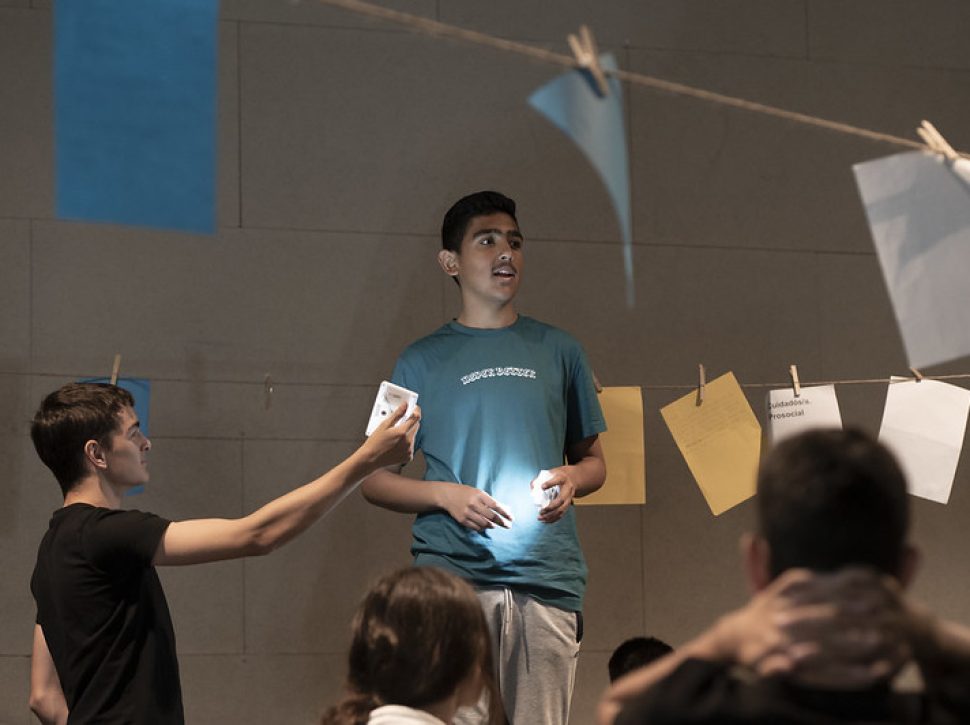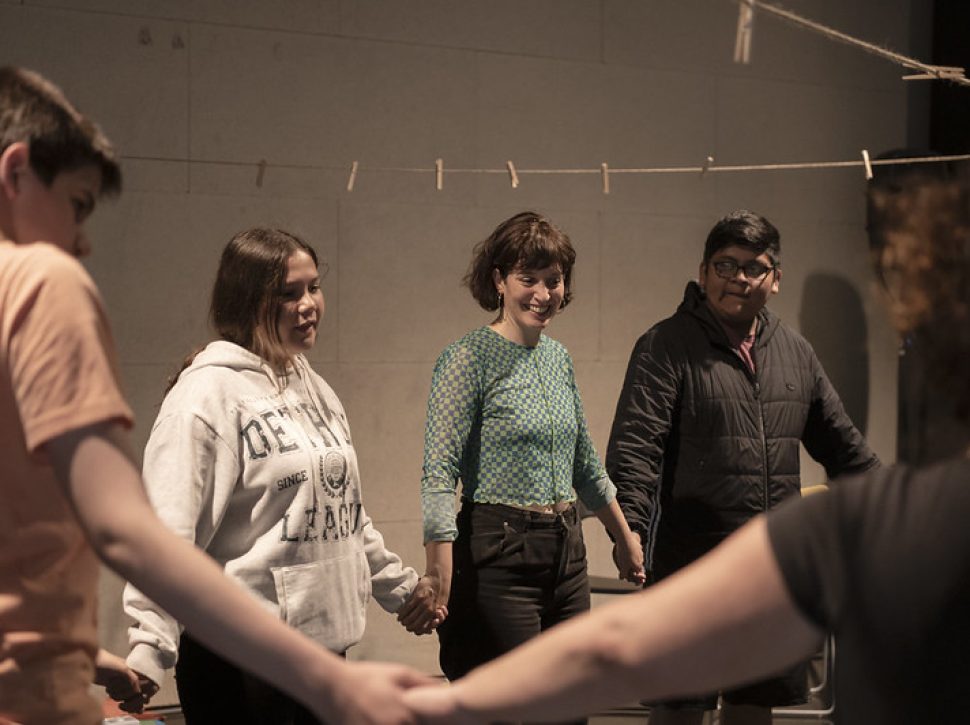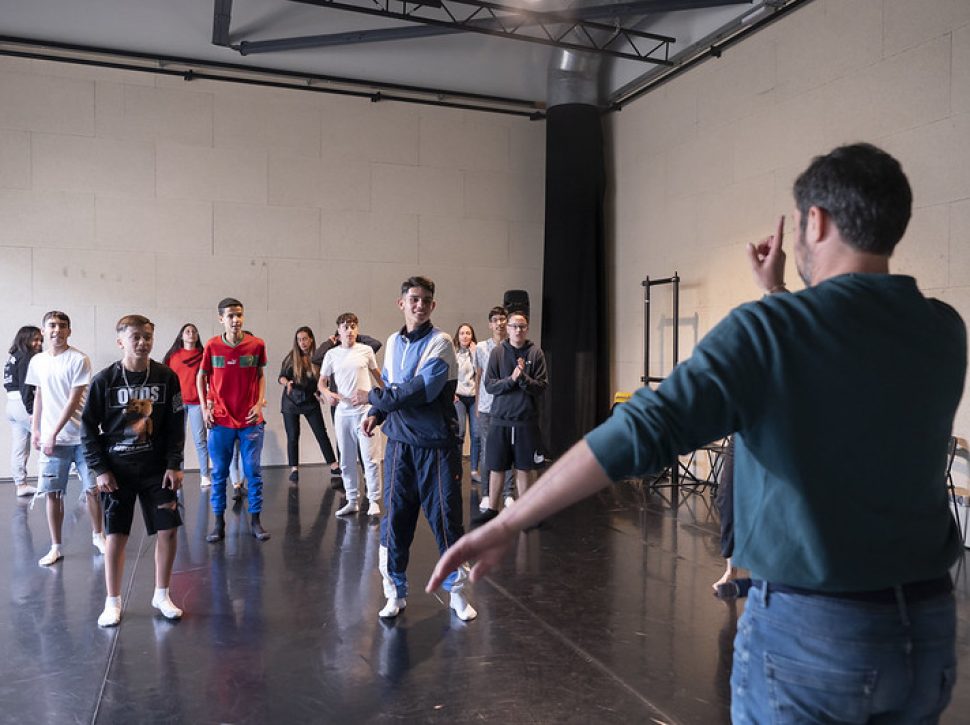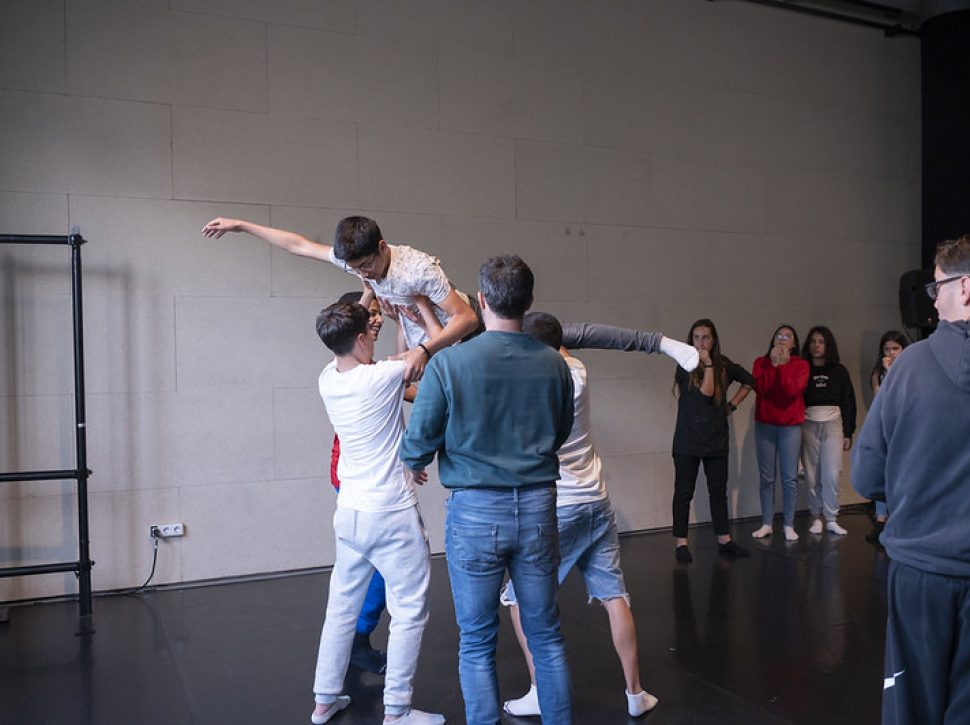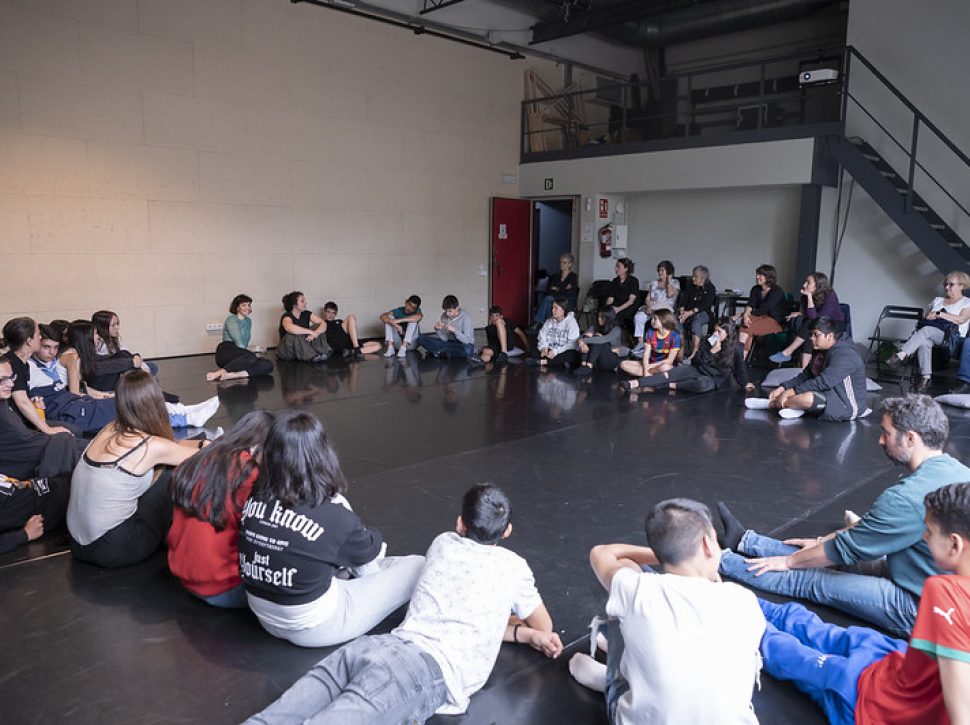As a center for dance and live arts, we promote an education that places the body and action at the center of the experience: practicing from the body other ways of transmitting knowledge. But above all, we aim to weave long-term, flexible collaborations based on mutual trust, to generate an educational community in a broad sense: with the teaching staff, students, families, and the neighborhood. An education focused on living practices, open to risk, unpredictable, committed to research, evolving and under construction.
From this standpoint, we ask ourselves: What types of pedagogies can we activate in classrooms and transfer to creation centers? What role do bodily knowledge play in the collective learning processes of cultural and educational practice in the La Marina neighborhood? Any issue related to the body (and therefore to experience) is difficult to translate into words, and thus at first, “bodily knowledge” is perceived as a complex and abstract concept. What do we understand by “bodily knowledge” and how can we share this issue with everyone involved in the educational project? Which voices speak and which do not in the classroom? Which bodies become more present and what happens with what is not said? What relationship do the acting bodies establish with those who observe their actions? What new questions arise for teachers and artists when we address these issues collectively and collaboratively? And what tensions arise from proposing them as a research topic within the classroom and within the educational programs of cultural institutions?
From these fundamental questions, some objectives of the educational project are derived: To observe how an affective, intimate, critical, and committed learning space can improvise, create, affect itself, and question pedagogical action. To break with the logic of beginnings and endings, generating time to disperse and move away from productivity logics. To make visible the hidden, dispersed, or invisible knowledge that questions dominant logics, displacing given knowledge and learned positions to conduct collective imagination exercises that allow us to question inherited cultural configurations and develop alternative forms of relationships. For the educational and cultural project to go beyond the classroom and become a catalyst for changes, actions, and common projects, affecting the rest of the educational community and the neighborhood. To generate tools or resources transferable to other study communities of the global Graner project.
With the mediation of Magdalena Garzón: “I have a degree in Environmental Sciences and Choreography. My practice and personal interest focus on Body Weather training and somatic body practices. I am interested in body work and expression in various contexts and social groups, proposing an approach from socio-educational projects. In 2017, I received a scholarship from the OAEA of the Institut del Teatre to develop a dance pedagogy for people with visual diversity linked to creation and audio description in dance. Since 2020, I have regularly collaborated with the accessibility work team for exhibitions at the CCCB.”
The Graner educational program is part of the Caixa d’Eines(Toolbox) program, supported by the Barcelona Neighborhood Plan, which consists of introducing artistic practices into the school curriculum with the aim of reducing inequalities between the city’s neighborhoods.
![]()





